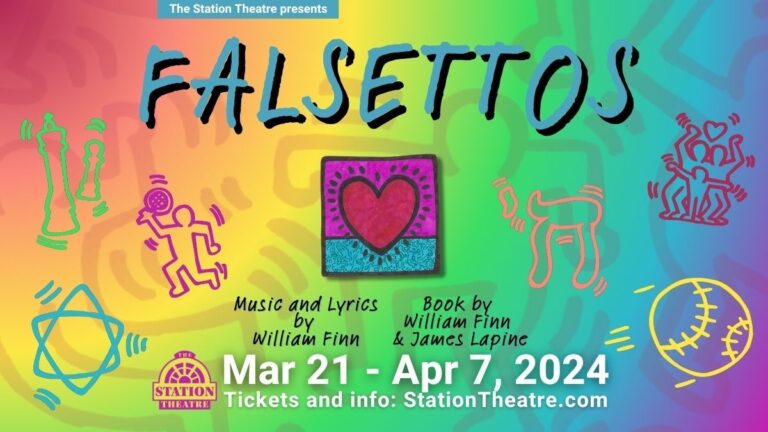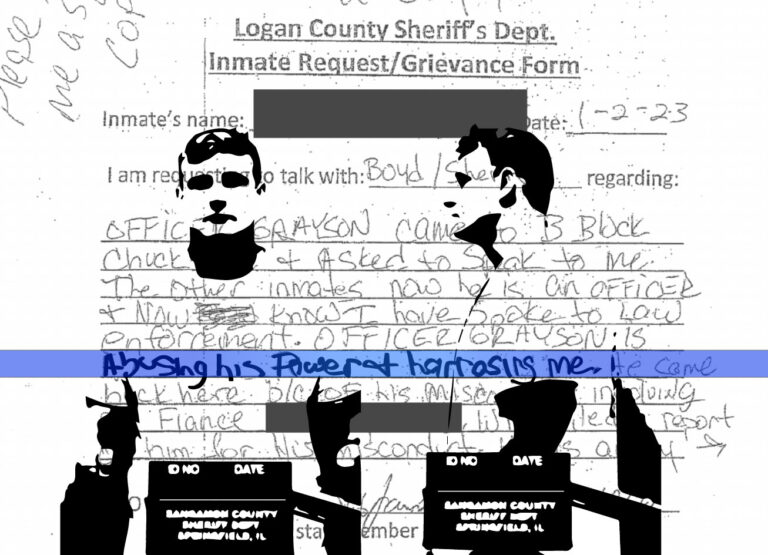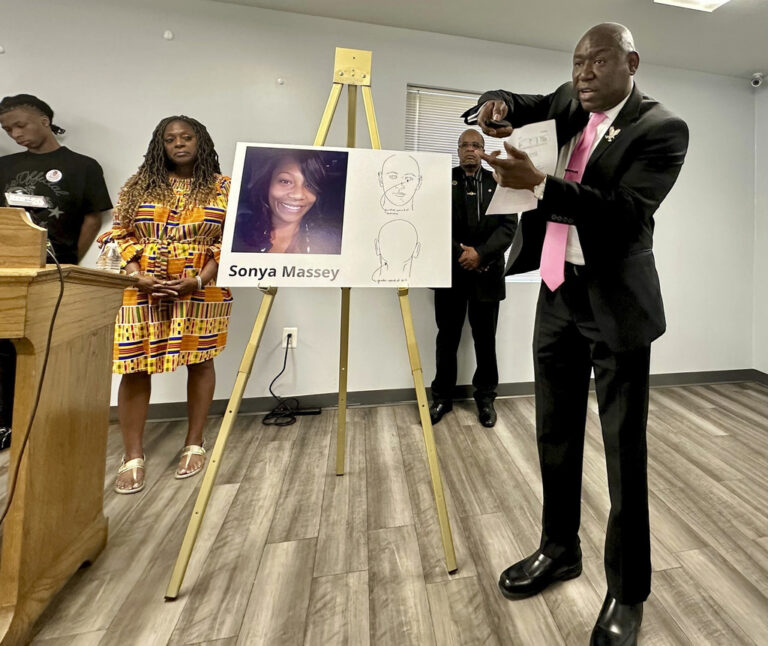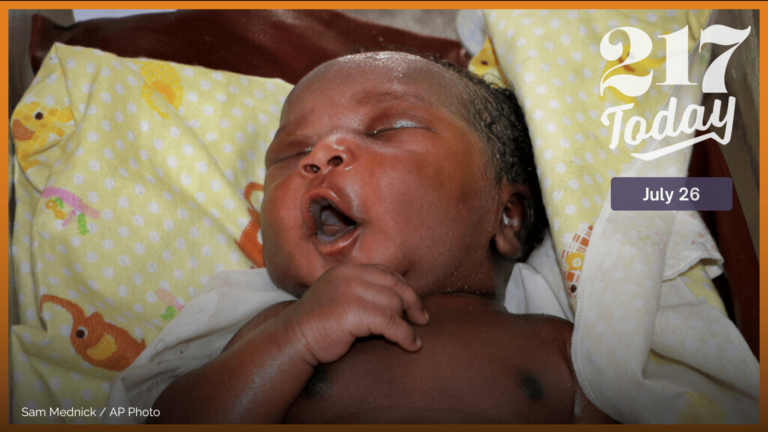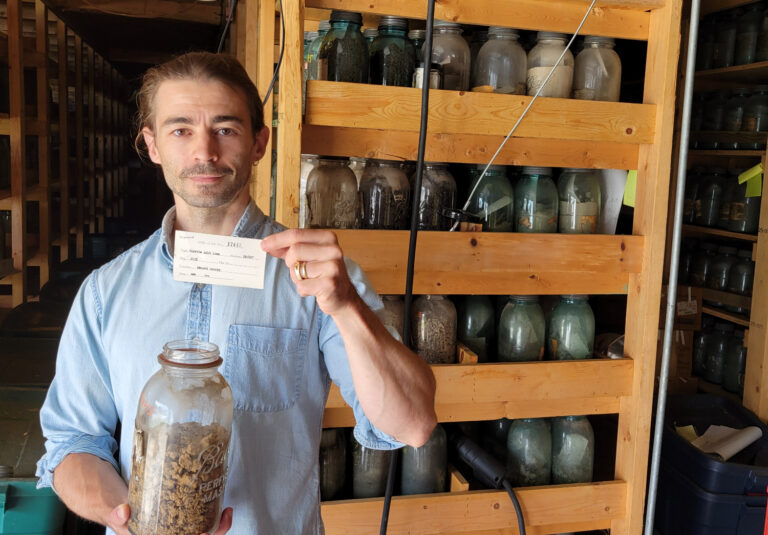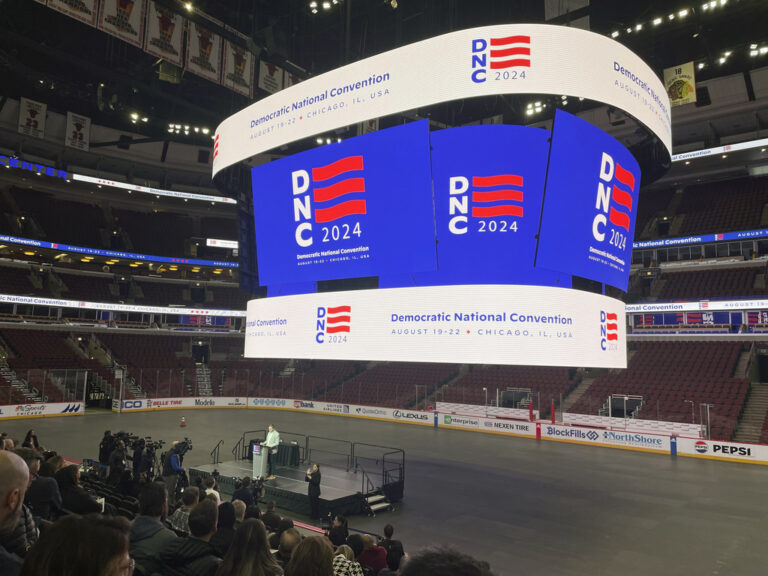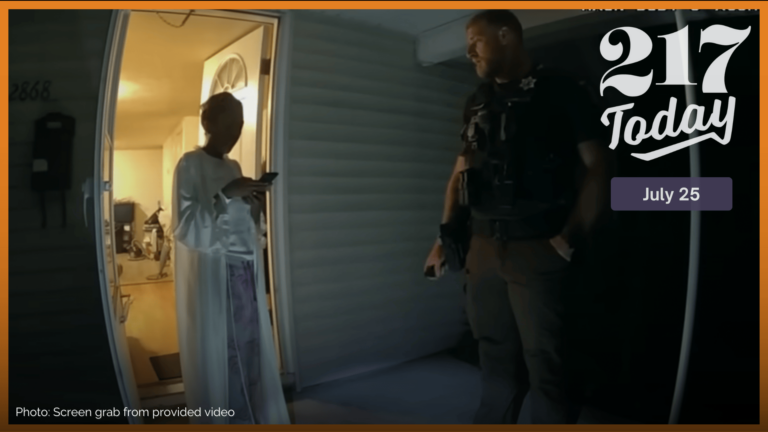Two of Illinois Public Media’s very own will take the stage for the opening week of Falsettos at the Station Theatre in Urbana. IPM News Director, Reginald Hardwick spoke with IPM’s hosts and reporters Owen Henderson and Kimberly Schofield about their roles and the significance of this musical.
Reginald Hardwick: This is Morning Edition from Illinois Public Media News. I’m Reginald Hardwick. I’ve temporarily taken over hosting duties because I’m going to interview two of my colleagues here at IPM. As you hear every Wednesday, Kimberly Schofield and Owen Henderson, give us an update on arts and entertainment around central Illinois and their weekly WILL Call reports. But starting Thursday, March 21, Kimberly and Owen will be on stage at the Station Theatre in Urbana for the musical Falsettos. Owen, I understand this musical takes us back to the end of the 1970s, early 1980s, New York City. Set the scene for me.
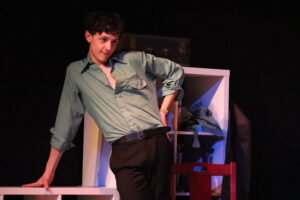
Owen Henderson: It’s 1979. And Marvin, the main character, has realized that he’s gay after being married to a woman for close to 12 years and having a son. So he leaves his wife and his son to pursue a relationship with my character, Whizzer. In this timeframe, HIV is starting to spread through the gay community in New York City. And it’s a story about what can kind of make a family, as well as what can tear it apart. You know, we’ve got a lot of heavy topics, but it is also a very light and witty and fun show.
Kimberly Schofield: This production was originally going to be done at the Station Theater in Urbana back in 2020 and then COVID hit and everything shut down. So when this was coming back, I was pretty excited to go and audition for it. Even though it takes place in the late 70s, early 80s, I know people truly from ages 16 all the way up through ages 70 who love this story and who love the music.
RH: The scene for the show is before both of you were born. So Owen, I’ll start with you and then Kimberly. How did you connect to your characters?
OH: Teaching about HIV and AIDS history is something that’s become super important to me over the last few years. I had the opportunity to work with Illinois Public Media and the Spurlock Museum on the Sewn in Memory Project, where the Spurlock Museum was going to be displaying panels of the HIV/AIDS Memorial Quilt. I was part of a team of students that put together sort of miniature documentaries about each of the men being memorialized. It really opened my eyes to just how traumatic this was for the queer community. It’s not something that you learn about a lot in school, you know, they tell you, HIV/AIDS are these bloodborne pathogens, here’s kind of what they do. But they don’t really tell you…here’s the impact that this really had on our community and on all communities. HIV is not something that is contained to just the gay community, it affects everyone. And so being a young gay man, in this time, who’s starting to realize that there is a problem…the show never uses the words HIV or AIDS or even GRID, Gay-Related Immune Deficiency, they just say that something bad is happening because that’s all anyone knew…was that something bad is happening. And so that was a big part of how I connected with my character.
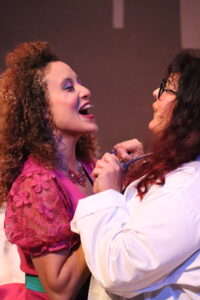
KS: For my character, Cordelia, she is a friend to the people who are being directly affected by this disease and supporting the people who are trying to help treat the people who are affected by it. And I really empathized with that support that the character is giving. Cordelia being a bright character and being able to listen and learn is something that I found myself doing. It’s a role that I kind of naturally fall into. I also know people who are HIV+ and seeing all of this come together and seeing how passionate people are about it and how it is still something that’s relevant today was something that I really did empathize with. And I wanted to sit back and listen and learn and I’ve been able to do that through my character.
RH: Both of you are in Falsettos at the Station Theatre, but not in the same cast, so explain to me how that affected rehearsals.
KS: We have a main cast and we have an understudy cast. Especially after COVID, the understudy casts have been incredibly important. At rehearsals, now that we’re coming up to opening the show, both casts are there and I think that’s really helpful to see what your blocking will look like when you are then stepping into that role or to hear what other people are doing, to see what other people are are doing.
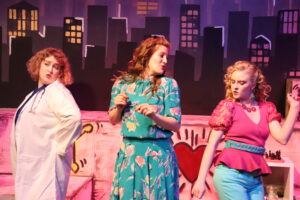
OH: Right. It is interesting because you’ve got some people who were in that original cast in 2020, who have been thinking about this music and thinking about their character for four years. They were super lucky to get the chance to come back and actually perform this show that they were supposed to perform four years ago. And then you’ve got people who are coming in these last few months who have a totally different connection to the show, have a totally different connection to our characters. And it’s been really interesting to watch those interactions play out of some people who’ve been thinking about their songs and what they mean for the past four years and they can share some of that insight and still have new things brought up to them.
RH: Owen, why is this musical still relevant in today’s day and age when HIV/AIDS is relatively regarded as a manageable disease?
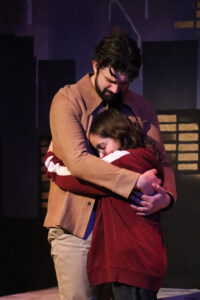
OH: Making sure that people are aware of what the real impact on the ground of the beginning of the HIV/AIDS crisis was, I do think, is such an important task. It’s not something that many people are taught about. And when they are taught about it, you know, it’s in kind of abstract terms. There’s not a real human face put to it. And I think this show does an incredible job of showing what this disease can do to a family. This show also does a great job of showing how the lesbian community stepped up to help gay men because the lesbian community was not nearly as affected by HIV and AIDS as gay men were. And I think for people outside the queer community, they can draw their own parallels to the recent COVID-19 pandemic of…this is a disease that can hit almost anyone and it can have such terrible long-term impacts. You can lose loved ones so easily. And just being able to empathize in that way, I think is really important to bring understanding between different communities and bringing people together.
RH: We’re going to come back to discussing Falsettos in a minute, but we do have some sad news for our IPM listeners. Owen will soon be leaving us for a new opportunity. Where are you going and what will you be doing?
OH: I will be leaving Illinois Public Media to be the Morning Edition host for Spokane Public Radio in Spokane, Washington. I’ve truly enjoyed my time at Illinois Public Media. It has really shaped who I am as a journalist and I’m truly so so thankful for everyone at Illinois Public Media.
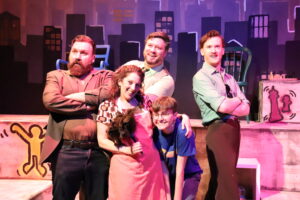
RH: Well, we thank you and we know the people of the state of Illinois thank you for your service. We wish you good luck on the West Coast.
OH: Thank you so much.
RH: That was Owen Henderson and Kimberly Schofield. Thank you again for joining us to talk about Falsettos.

